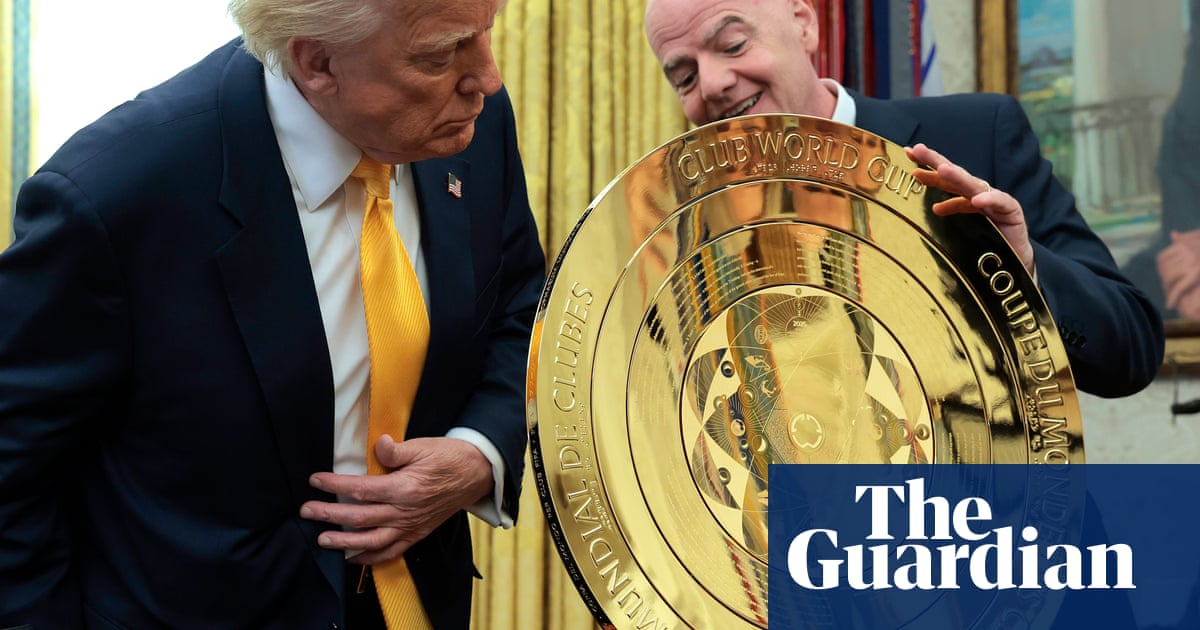A US State Department spokesperson on Thursday claimed that attendees of the upcoming World Cup and Olympics should support the restrictions on travel from 19 countries ordered byDonald Trump.
On Wednesday evening, the US presidentsigned a sweeping orderbanning travel from 12 countries and restricting travel from seven others, reviving and expanding a policy from his first term.
“I think people from around the world, and Americans going to these events, would want to see actions like this,” said US State Department spokesperson Tommy Pigott at a press briefing on Thursday afternoon. “This is part of what it means to host an event. We take security concerns extremely seriously, we want people to be able to go to the World Cup and do so safely.”
The order claims at various points that the restrictions are a response to supposed deficiencies in each country’s own vetting procedures. Pressed on Thursday on what relevance other country’s procedures had on the US’s ability to vet immigrants themselves, Pigott declined to elaborate.
Nationals of Afghanistan, Myanmar, Chad, the Republic of Congo, Equatorial Guinea, Eritrea, Haiti, Iran, Libya, Somalia, Sudan and Yemen will be “fully” restricted from entering the US, according to Wednesday’s proclamation. Meanwhile, the entry of nationals of Burundi, Cuba, Laos, Sierra Leone, Togo, Turkmenistan and Venezuela will be partly restricted. The order is set to go into effect on 9 June.
The order does contain an exceptionfor “any athlete or member of an athletic team, including coaches, persons performing a necessary support role, and immediate relatives, travelling for the World Cup, Olympics, or other major sporting event as determined by the secretary of state.” However, that exception does not explicitly cover a number of specific cases or situations that will be relevant for players from affected countries who intend to play in the United States.
First, the exception does not specify whether the “World Cup” referred to in the order includes theClub World Cup, which starts this month and is being hosted by the US. Asked by the Guardian whether the Club World Cup – in which a number of players from the banned countries are due to play – was included in the exception, a State Department spokesperson declined to comment other than to say they would not get into hypotheticals or specific cases.
Fifa also declined to comment to the Guardian when asked about this distinction and whether the organization was involved in lobbying Trump to carve out this exception as part of the travel ban.
The definition of “major event” is also left open to interpretation, making it unclear whether or not this summer’s Gold Cup qualifies. That tournament, the regional soccer championship for North and Central America and the Caribbean will feature Haiti, who are scheduled to play the United States in Austin, Texas on 19 June in addition to group games in San Diego, California and Arlington, Texas.
A spokesperson for Concacaf, the confederation that oversees the Gold Cup, did not respond to a request for comment. The State Department declined to comment.
Sign up toSoccer with Jonathan Wilson
Jonathan Wilson brings expert analysis on the biggest stories from European soccer
after newsletter promotion
The order also lays out a number of exceptions regarding current visa holders, providing a list of visa types for which holders will not be subject to travel restrictions. The P-1 visa most often issued to professional soccer players inMLS, the NWSL and other leagues is not listed among those who qualify for the exception, but specific type of banned visas are specified for individual countries in the order.
Venezuela, for example, has various types of B, F, M and J visas that are banned under the order. That means that the order does not impact P-1 visas issued to nationals of Venezuela. MLS currently has three players on international duty with Venezuela. One, the San Jose Earthquakes’ Josef Martínez, became a US citizen last year. The other two, Inter Miami’s Telasco Segovia and LAFC’s David Martínez, are recent arrivals to MLS and do not yet have permanent residency. Venezuela are set to play a World Cup qualifier on Thursday night against Bolivia, and are scheduled for another at Uruguay on Tuesday 10 June – one day after the ban is set to be enforced.
An MLS spokesperson declined to elaborate when asked if there were concerns about the Venezuelan players’ immigration status. Asked on Thursday if the travel ban could impact current US visa holders from these countries, Pigott said that the exceptions will apply on a “case-by-case basis.”
